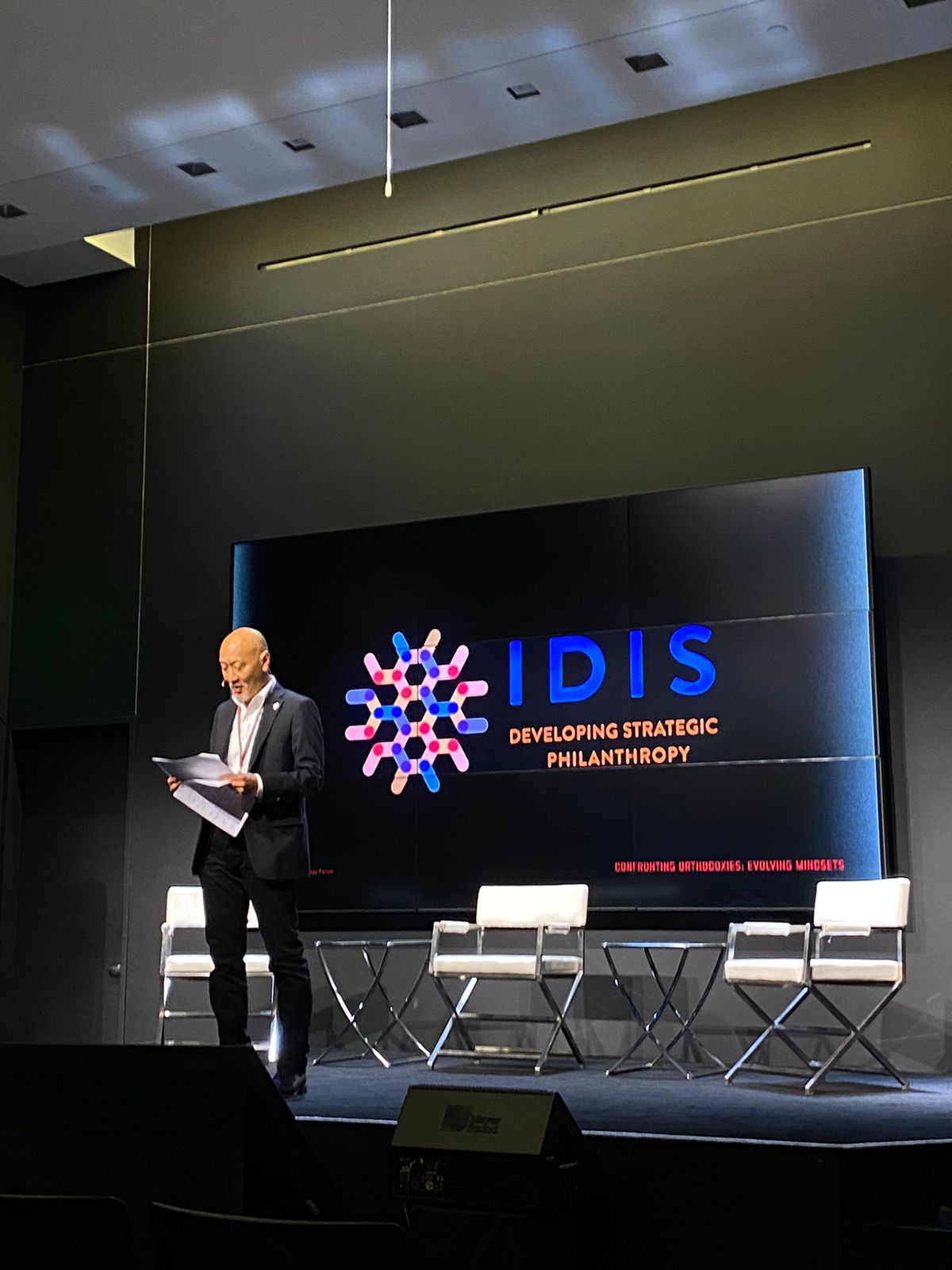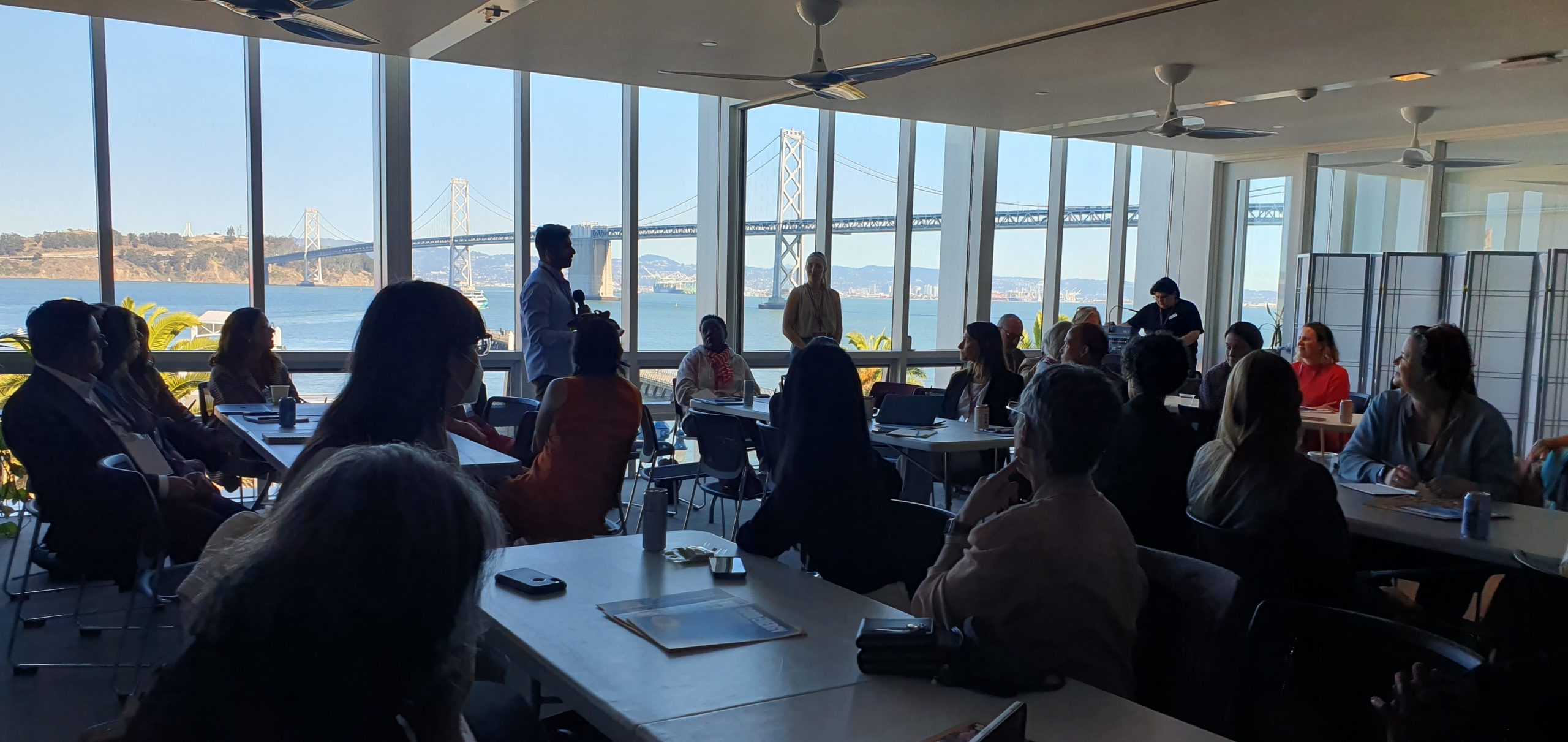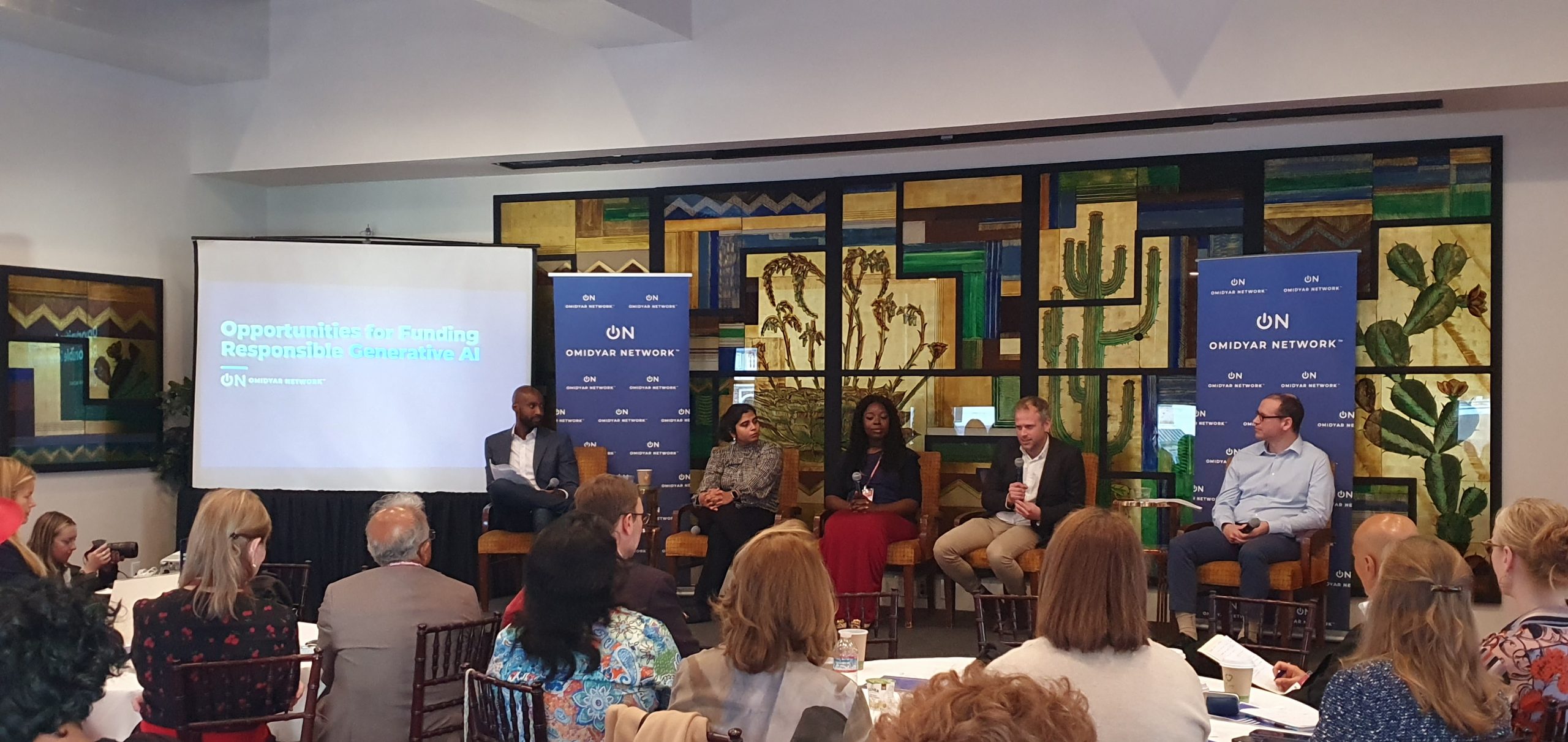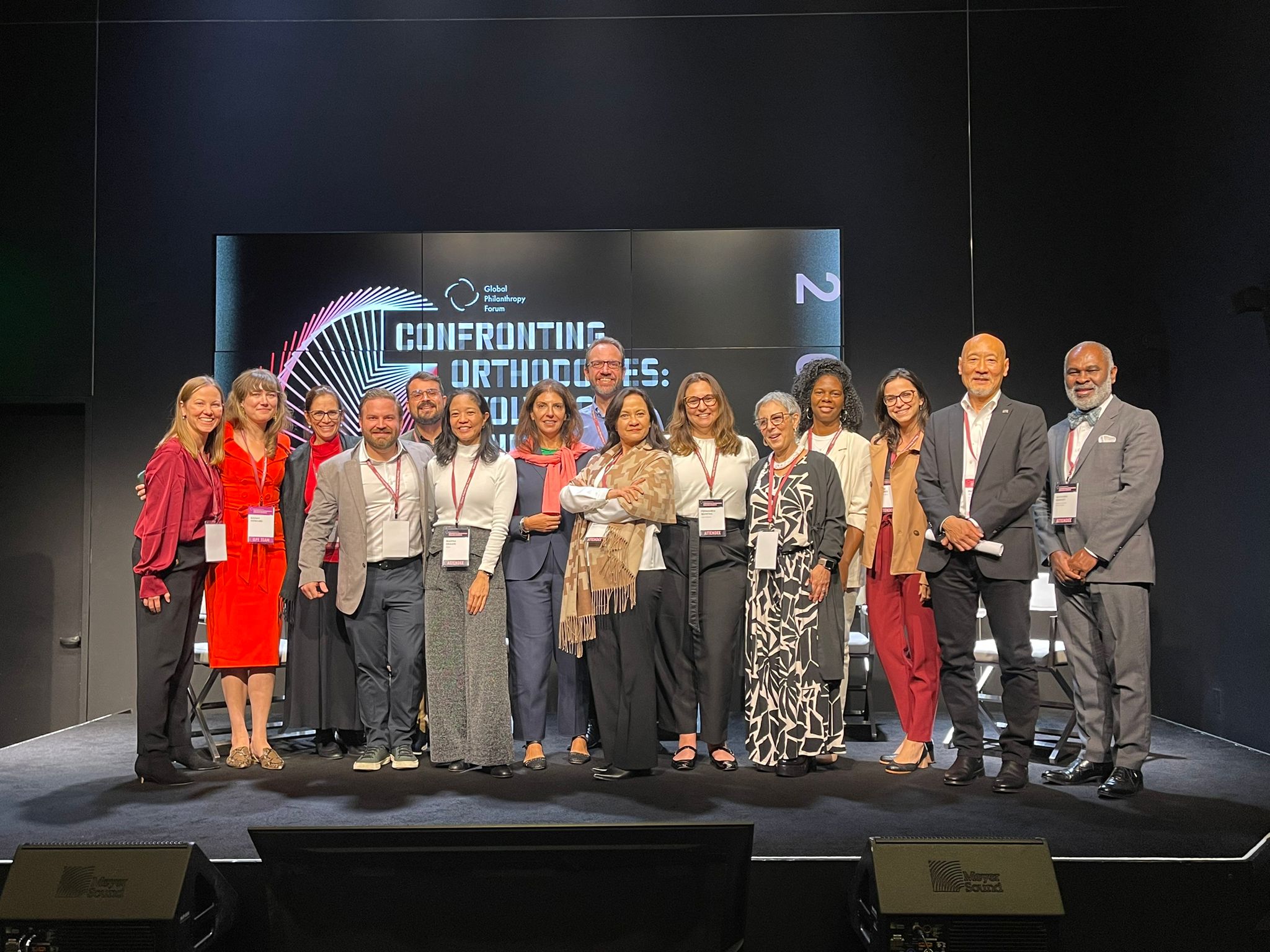Following the tradition, San Francisco was the set for the Global Philanthropy Forum 2023, attracting approximately 250 participants from around the world. The event featured 86 speakers over two and a half days of intensive programming. The Brazilian delegation, led by IDIS, brought together 13 members from different organizations.
 The event’s discussions addressed topics such as the power dynamics between donors and beneficiaries, the decolonization of philanthropy, unrestricted donations, as well as issues related to diversity, humanitarian aid, and the correlation between socio-economic vulnerabilities and the impacts of climate change.
The event’s discussions addressed topics such as the power dynamics between donors and beneficiaries, the decolonization of philanthropy, unrestricted donations, as well as issues related to diversity, humanitarian aid, and the correlation between socio-economic vulnerabilities and the impacts of climate change.
The welcome session included Philip Yun, President, and CEO of the World Affairs/Global Philanthropy Forum, and Gloria Duffy, President, and CEO of the Commonwealth Club of California, who announced the merger of the organizations. IDIS was mentioned during the speech, highlighting its long-lasting and relevant partnership in international philanthropy, with the Brazilian Philanthropy Forum being one of the largest representatives of the event outside the United States.
In the panel titled Big dollars, big impact: what makes big bets effective?, funders and CEOs discussed what was essential for their organizations to achieve the scale and impact expected from substantial and unrestricted philanthropic resources. The conversation emphasized the need to structure organizations to receive and manage these resources, addressing a theme that emerged prominently during the event: governance.
The panel Embracing accountability to amplify community voices focused on the accountability of philanthropists. It was highlighted that if the executives of organizations are more concerned with what the board thinks than with what the beneficiaries think of their decisions, there is no accountability.
The issue of the limited diversity in the profiles of board members of donor organizations was also raised. This is seen as one of the obstacles to building trust relationships with resource-receiving organizations and beneficiary communities. “For centuries, we have valued our volunteer board members without questioning whether they are truly serving our organizations and purposes. We love our volunteers, but maybe we need to reevaluate this model”, noted one of the participants.
In the session Capacity over cash (aces in their places): Using corporate strengths to rethink emergency response, it was mentioned that 60% of in-kind donations (goods, services, and non-cash transactions) in the first two weeks after a shock are inadequate and do not meet the needs of affected communities. Additionally, 70% of donated disaster resources are lost in the delivery chain, with only 30% reaching the final beneficiaries. The session that addressed these numbers was enlightening, emphasizing the importance of organizations having competent and coordinated local partners.
The theme of unrestricted resources was explored in various sessions, along with the challenge of being accountable for the unrestricted resources received, aligned with trust-based philanthropy. The use of technology for data generation, project monitoring, and scalability was also a recurring theme, with a dedicated session to explore the role of philanthropy in supporting the development of responsible, secure, and ethical Generative Artificial Intelligence tools.
Another session discussed the importance of government involvement in the effectiveness and scalability of projects. During the discussion on government partnerships, challenges were highlighted, such as the difference in pace compared to philanthropic organizations and the reputational risk associated with such collaborations.
“Participating in the Global Philanthropy Forum 2023 was an enriching experience that allowed us to connect with people from incredibly diverse backgrounds. We firmly believe that the conversations and connections established at the event have the potential to generate transformative partnerships,” commented Andrea Hanai and Guilherme Sylos, both from IDIS.
Brazil at GPF
Led by Andrea Hanai, Project Manager at IDIS, and Guilherme Sylos, Director of Prospecting and Partnerships, the GPF delegation included Carla Duprat (ICE), Caroline Almeida and Giovanni Harvey (Baobá Fund for Racial Equity), Cristiane Sultani (Beja Institute), Fernanda Quintas and Livia Magro (Liga Solidária), Marco Camargo (Vetor Brasil), Maria Amália Souza (Casa Fund), Marisa Ohashi (Alana Institute), and Raphael Mayer (Simbi).
As event partners, IDIS annually organizes the delegation, strengthening the relationship among participants and with the global philanthropic community. Interested in participating? Contact us. The next GPF has not yet been scheduled but will be announced to our community as soon as it is.





